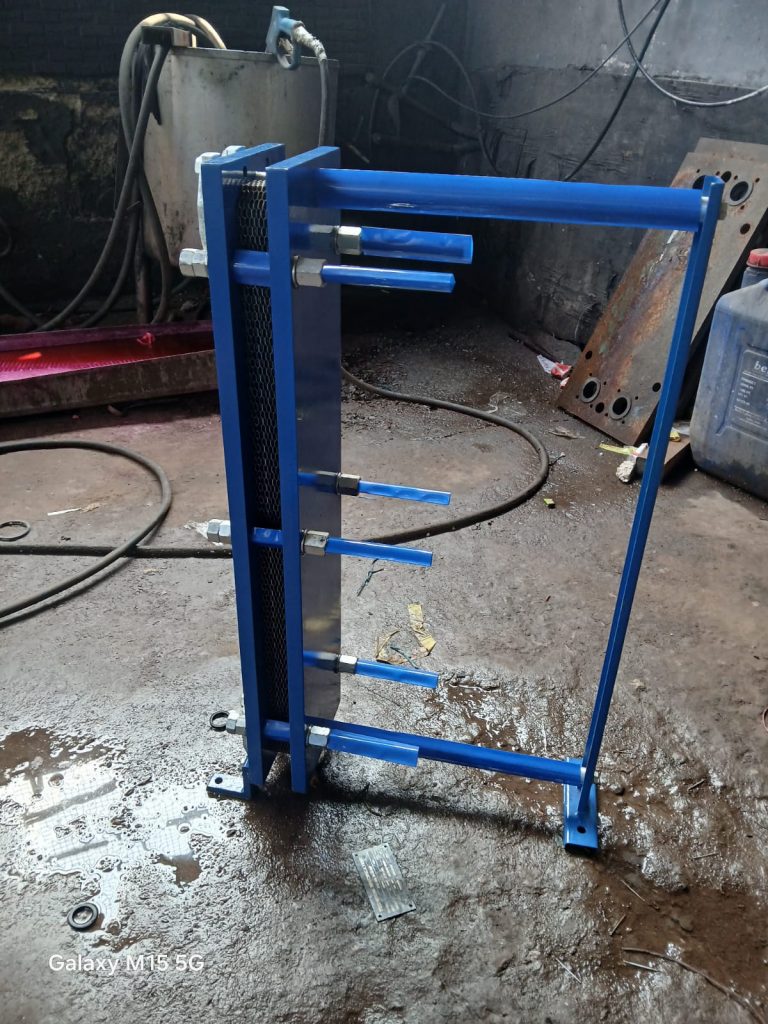When to choose titanium plate in heat exchanger
Titanium plates in a heat exchanger primarily when you need outstanding resistance to corrosion, especially from chlorides, seawater, and other aggressive media, and the cost is justified by the extended equipment life and reliability.
The decision is rarely based on strength or weight, but almost exclusively on chemical compatibility.
The Primary Reason: Chloride Resistance
The single most common reason for selecting titanium is the presence of chlorides in the fluid. Stainless steels (like 304 and even 316) are highly susceptible to Chloride Stress Corrosion Cracking (CLSCC), which can cause a catastrophic failure rapidly.
Titanium is virtually immune to CLSCC, making it the default choice in many environments where chlorides are present.
Here are the specific scenarios and applications where titanium plates are the necessary choice:
1. Seawater and Brackish Water Cooling
This is the most classic and widespread application for titanium plates.
- Why: Seawater is highly corrosive due to its high chloride salt content. It will rapidly pit and crack stainless steel.
- Applications:
- Offshore platforms: Seawater coolers for process and utility systems.
- Marine and Shipbuilding: Central coolers, engine jacket water coolers, lube oil coolers.
- Coastal Power Plants & Refineries: Using seawater for once-through cooling or as a cooling tower makeup water.
2. Chlorinated Waters
Even treated fresh water can be highly corrosive.
- Why: Municipal water and cooling tower water are often treated with chlorine or bromine to control biological growth. These halogens are extremely aggressive to stainless steels.
- Applications:
- HVAC Systems: Plate heat exchangers in buildings using city water or treated cooling tower water on one side.
- Process Cooling: Any industrial process where chlorinated water is the cooling medium.
3. Aggressive Chemical Processes
Titanium offers excellent resistance to a wide range of chemicals, particularly oxidizing acids and salt solutions.
- Why: It forms a tenacious, protective oxide layer that is stable in many corrosive environments.
- Applications:
- Chlor-alkali industry: Handling chlorines, hypochlorites, and chlorates.
- Metal Pickling: Resists nitric acid and nitric-hydrofluoric acid mixtures (specific grades required).
- Pulp & Paper Bleach Plants: Handling chlorine dioxide and other bleaching agents.
- Chemicals: Production of organic chemicals, pharmaceuticals, and dyes where chloride ions are present.
4. Food, Beverage, and Pharmaceutical Applications
- Why: Titanium is non-toxic, non-contaminating, and highly corrosion-resistant to many organic acids found in food.
- Applications:
- Food Acids: Excellent for processes involving citric, tartaric, and lactic acids.
- Brewing & Beverages: Often used for its cleanability and durability in aggressive cleaning-in-place (CIP) solutions.
